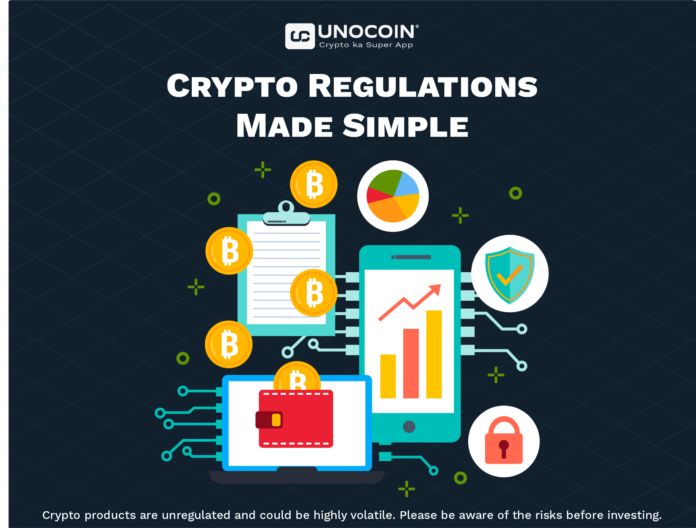Familiarity with cryptocurrency regulations is essential for investors who want to participate responsibly and in accordance with the rules in the digital asset space. As governments around the world implement various regulatory measures, being informed about the legal environment is critical to mitigating risk and ensuring compliance.
One approach to navigating cryptographic regulations is to keep up-to-date on regulatory developments in various jurisdictions. While some countries have embraced cryptocurrencies and blockchain technology, others have taken a more cautious or restrictive approach. Understanding the regulatory environment in specific regions can help investors make informed decisions about their investments. For example, countries like Switzerland and Singapore have established clear regulatory frameworks that provide certainty and foster innovation in the cryptocurrency industry.
Also view: Prevention of Money Laundering Act (PMLA)
Furthermore, compliance with Know Your Customer (KYC) and Anti-Money Laundering (AML) regulations is essential for investors and cryptocurrency exchanges. By verifying the identity of their users and implementing robust AML procedures, exchanges can prevent illicit activities such as money laundering and terrorist financing. For example, cryptocurrency exchanges in regulated jurisdictions typically require users to undergo identity verification and adhere to strict AML/KYC procedures to comply with regulatory requirements.
Additionally, investors should be aware of tax implications associated with cryptocurrency investments. Capital gains taxes, reporting requirements, and tax treatment of different types of transactions can vary depending on the jurisdiction. Seeking advice from tax professionals can help investors navigate these complexities and ensure compliance with tax laws. For example, some countries tax cryptocurrency gains as capital gains, while others treat them as income subject to different tax rates.
In summary, navigating crypto regulations requires a thorough understanding of the legal landscape, compliance with KYC/AML regulations, and awareness of tax implications. By staying informed and adhering to regulatory requirements, investors can mitigate risks and navigate the cryptocurrency market successfully.
Please find the list of authentic Unocoin accounts for all your queries below:
- YouTube Channel: https://www.youtube.com/c/Unocoin/videos
- Newsletter: https://medium.com/subscribe/@Unocoin_growth
- Blogs: https://blog.unocoin.com
- Instagram: https://www.instagram.com/unocoin/
- Twitter: https://twitter.com/Unocoin
- Facebook: https://www.facebook.com/unocoin/
- LinkedIn: https://in.linkedin.com/company/unocoin
- Telegram Group: https://t.me/Unocoin_Group
- Telegram Channel: https://t.me/+fasQhTKBsfA5N2Zl
- Telegram: https://t.me/UnocoinSupport_Bot
- E-mail id: [email protected]
- Contact details: 7788978910 (09:30 AM IST – 06:30 PM, Mon – Sat)
- App store link: https://apps.apple.com/us/app/unocoin/id1030422972?ls=1
- Playstore link: https://play.google.com/store/apps/details?id=com.unocoin.unocoinwallet
Disclaimer: Crypto products are unregulated as of this date in India. They could be highly volatile. At Unocoin, we understand that there is a need to protect consumer interests as this form of trading and investment has risks that consumers may not be aware of. To ensure that consumers who deal in crypto products are not misled, they are advised to DYOR (Do Your Own Research).







